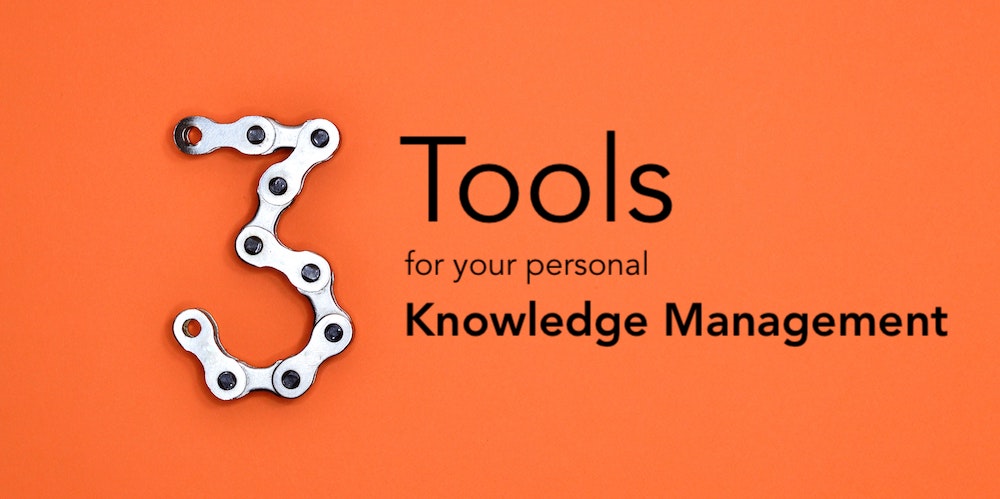You find that it’s not enough for you only to read, to save a favorites list with links, or just to watch webinars. If you really want to structure your personal knowledge more profoundly and deal with it systematically and efficiently, you will need a few digital tools. You probably prefer paperless working and appreciate other advantages.
In my previous extensive blog post, I recommended 5 steps to start managing your personal knowledge. For this purpose, I point in this blog post to the three most important tool categories for personal knowledge management.
Taking notes
There are many reasons why we take notes. When it comes to taking up newly acquired information in a way that you can understand, read it later and work with it, then I suggest to consider the following criteria first:
1. Organize: Can you bring your information in a well-structured order?
2. Searchable: Can you find your information easily?
3. Linkable: Can you link your information with each other?
4. Accessible: Can you have access to your information from everywhere and from all your mobile devices?
5. Shareable: Can you share your information with other people?
To give you an idea about a good tool for a single user I picked out Evernote:
- account required
- access from anywhere
- cloud storage (Google)
- storing notes, web links, pictures, sketches and more
- assign several keywords to a note in order to link it to multiple knowledge areas simultaneously
- searching via the search box or keyword list
- organizing notes in (knowledge-area-based) notebooks
- sharing content with others
Some other frequently used tools are Google Keep, Notes (Mac), Microsoft OneNote, Bear, TiddlyWiki and more.
Knowledge-based visualization tools
To create knowledge maps, concept maps or mind maps, one can use of course paper and pencil. But digital tools provide much more benefits, as mentioned above.
With tools like MindNode or MindManager you can easily visualize information in a structured way and design the relationships between them. You can also record notes for individual nodes. Also, these tools meet the above-mentioned criteria.
Networking tools
It is well known that active networking expands one’s own knowledge. Likewise, the knowledge of a community grows. The result is that something new of an unpredictable quality and scale can emerge. Fortunately, we live in a time in which people understand more and more the importance of such symbioses and are willing to share and exchange knowledge.
Depending on which topics you are interested in and which topics you would like to discuss with others and how deep you would like to dive in, the tools and sources can differ.
Since we are talking about tools for your personal knowledge management, the social media platforms are to be understood as a generic term.
In addition to the usual social networking platforms on Facebook, Twitter, LinkedIn, Google+, Yammer or communities like BüroZüri, there are also many topic-related expert forums you should not underestimate. Whether for aviation enthusiasts or for autodidactic language learners, every one of you will find platforms on the Internet where you can meet experts in a specific field.
With this short blog post, I would like to give you some impulses, which kind of tools you can consider for your personal knowledge management. Please do not hesitate to post your experiences and recommendations below. Feel free to get in touch with me, if you have any further questions on this topic.
Kind regards,
Azadeh Eshaghi
First publication in the BüroZüri community (6th of December 2018), powered by Zürcher Kantonalbank

